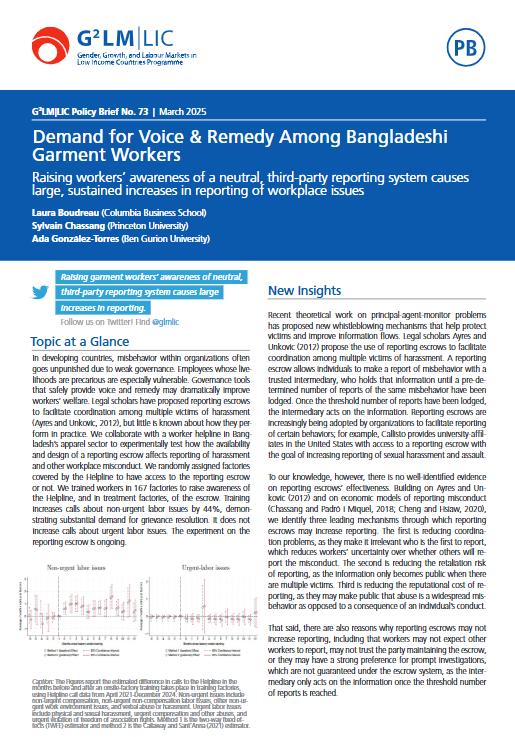In developing countries, misbehavior within organizations often goes unpunished due to weak governance. Employees whose livelihoods are precarious are especially vulnerable. Governance tools that safely provide voice and remedy may dramatically improve workers’ welfare. Legal scholars have proposed reporting escrows to facilitate coordination among multiple victims of harassment (Ayres and Unkovic, 2012), but little is known about how they perform in practice. We collaborate with a worker helpline in Bangladesh’s apparel sector to experimentally test how the availability and design of a reporting escrow affects reporting of harassment and other workplace misconduct. We randomly assigned factories covered by the Helpline to have access to the reporting escrow or not. We trained workers in 167 factories to raise awareness of the Helpline, and in treatment factories, of the escrow. Training increases calls about non-urgent labor issues by 44%, demonstrating substantial demand for grievance resolution. It does not increase calls about urgent labor issues. The experiment on the reporting escrow is ongoing.

Demand for Voice & Remedy Among Bangladeshi Garment Workers
- Laura Boudreau
- Ada González-Torres
- Sylvain Chassang